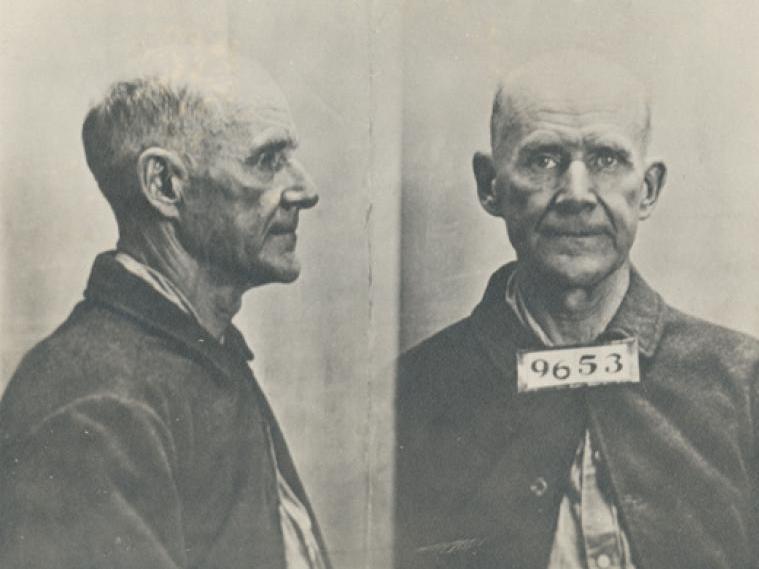Life during the free speech administration

A guy in Tennessee spent more than five weeks in jail because of an anodyne Facebook meme that did not even jokingly threaten violence:
The officers came to arrest Larry Bushart shortly before midnight on Sept. 21.
Mr. Bushart, a 61-year-old retired police officer living in Lexington, Tenn., had posted a meme on Facebook after the assassination of the conservative activist Charlie Kirk on Sept. 10. It was a picture of Donald Trump along with Mr. Trump’s comment in response to a school shooting at Perry High School in Iowa in 2024: “We have to get over it.” The meme was headed by the caption, “This seems relevant today.”
Mr. Bushart shared that meme in a Facebook thread promoting a vigil for Mr. Kirk in nearby Perry County, Tenn. The Perry County Sheriff’s Office obtained a warrant for Mr. Bushart’s arrest, claiming that the post was a threat of “mass violence” at a school. The sheriff’s office did this even though the meme referred to a shooting that took place more than a year before at a school in Iowa. The only connection — if you can even call it a connection — was that the Iowa school also had “Perry” in its name.
Mr. Bushart’s bail was set at $2 million. Unable to pay, he spent 37 days in jail before prosecutors dropped the charge.
In my 25 years working as a lawyer on free-speech cases, I have seen a lot of overreach. I have never seen anything quite like this. With the help of a local attorney, my organization, the Foundation for Individual Rights and Expression, is preparing a federal civil-rights lawsuit against the Perry County sheriff and others, seeking damages and a ruling that what happened to Mr. Bushart violated the First Amendment.
This episode recalls the abuses that gave rise to modern First Amendment jurisprudence more than a century ago. The socialist leader Eugene V. Debs was convicted under the Espionage Act of 1917 for giving an antiwar speech and sentenced to 10 years in federal prison. Though the Supreme Court unanimously upheld his conviction, it later changed course, holding that the government may punish political advocacy only when it is intended and likely to produce imminent lawless action or when it amounts to a genuine threat.
Most of the hundreds of others of people who lost their jobs for making non-reverent posts about Charlie Kirk are not First Amendment issues per se, but do lay bare the bad faith of the broader right’s CANCEL CULTURE industrial complex. It’s always meant that they should be able to say whatever you want and you should be able to shut up, and the rise in state censorship is even worse than this.


